From Guilt to Responsibility
BY WILL RUTT | December 17, 2018
Sunday’s Readings
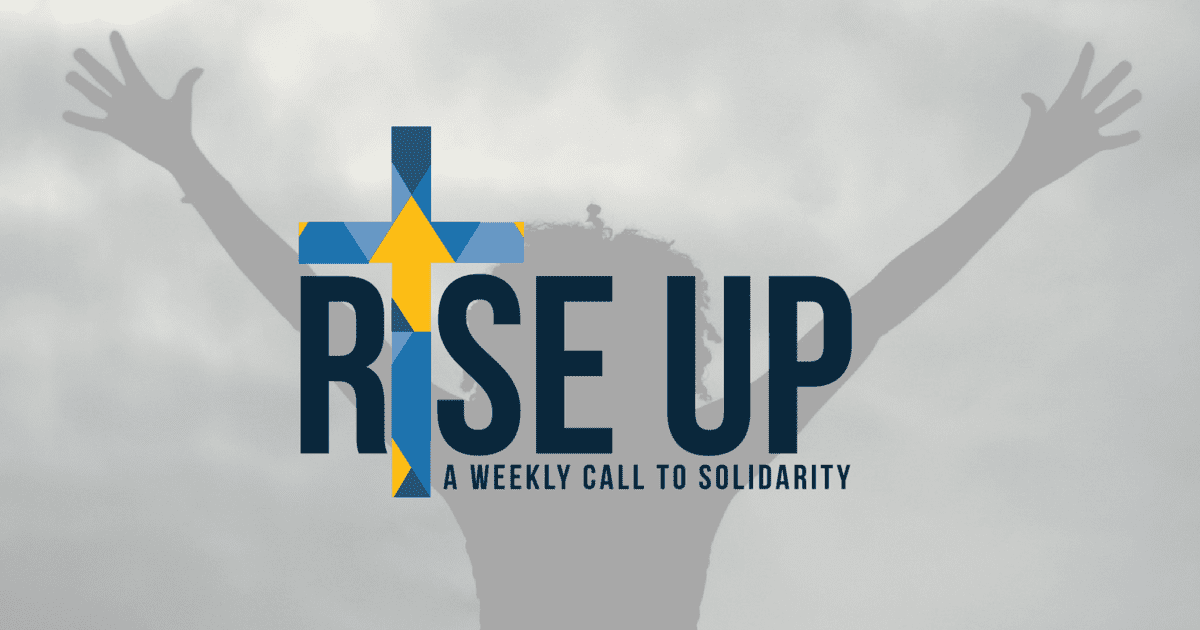
I’m tired, and not just because it’s the end of another busy semester of teaching, service learning, graduate school, and countless extracurricular activities. I’m beat down. Amidst the deep wounds caused by the sexual abuse scandal in the Church, increased vitriolic and xenophobic actions and rhetoric, and the institutional marginalization of so many people, I feel disoriented and paralyzed. This is all compounded by the fact that my privilege allows me to keep so many of these injustices at an arm’s length.
As I consider this Advent season, specifically the readings for the third Sunday, I can’t help but notice the theme of hope sourced in joy. The readings challenge us to center ourselves in the strength of the Lord, and in the joy of building the kingdom. Over the past year I have been pushed to examine my privilege (white, educated, U.S. citizen, cisgendered, male, to name a few), and many times I have found myself in a state of desolation—desolation that flows from insecurity and manifests itself in guilt. This guilt is a choice of hopelessness. It causes paralysis and makes me afraid to go where it hurts; to have difficult conversations with my students about race, gender, and immigration; to love those I disagree with. It causes me to become defensive and to listen to respond, rather than listening to care for.
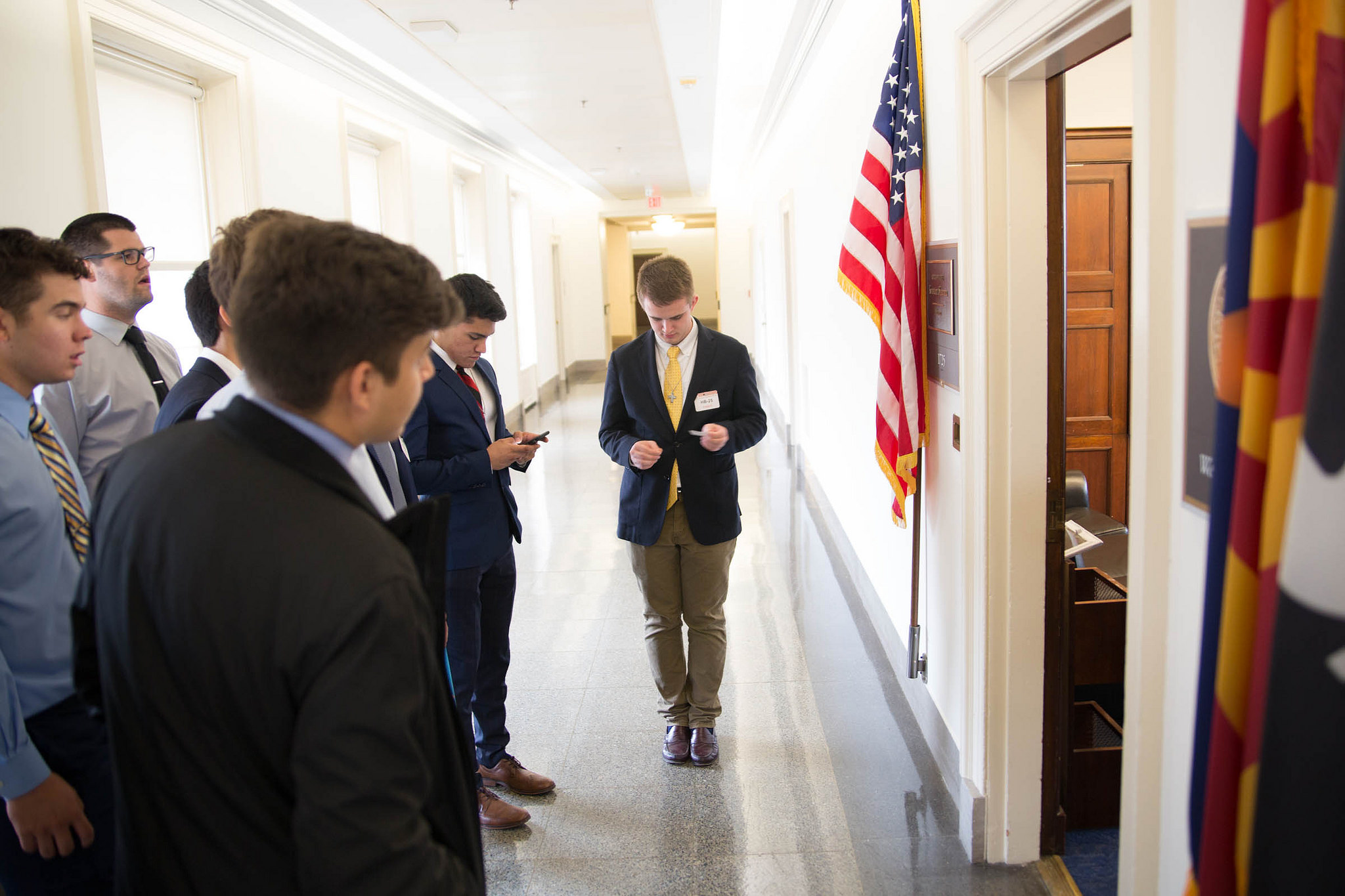
The author (left) with Brophy College Preparatory students at the 2017 Ignatian Family Teach-in for Justice Advocacy Day. [Brophy College Prep via Flickr]
Will Rutt is a graduate of Brophy College Preparatory and Creighton University, and is currently studying Catholic educational leadership, with a focus on equity and inclusion, at the University of San Francisco. He currently teaches religious studies at Brophy and serves as the Director of Ignatian Service and Advocacy. Immigration has been at the forefront of Will’s work over the last 10 years.

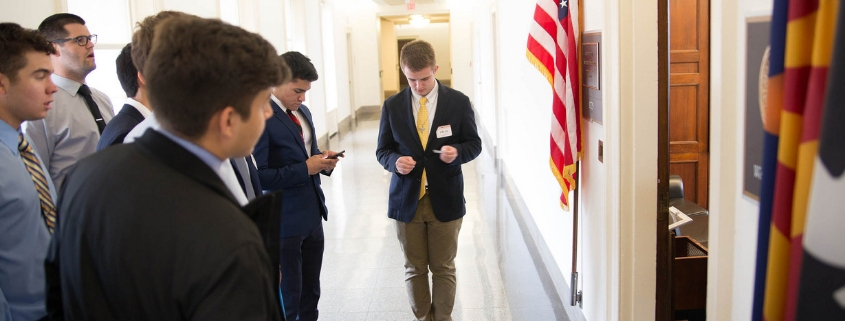
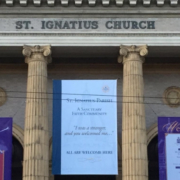
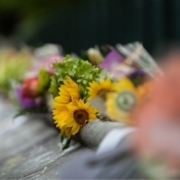
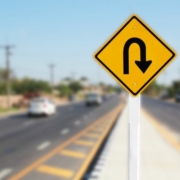

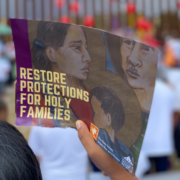
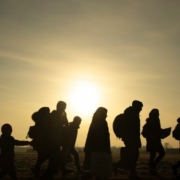

In advent we are offered an opportunity to be reborn.